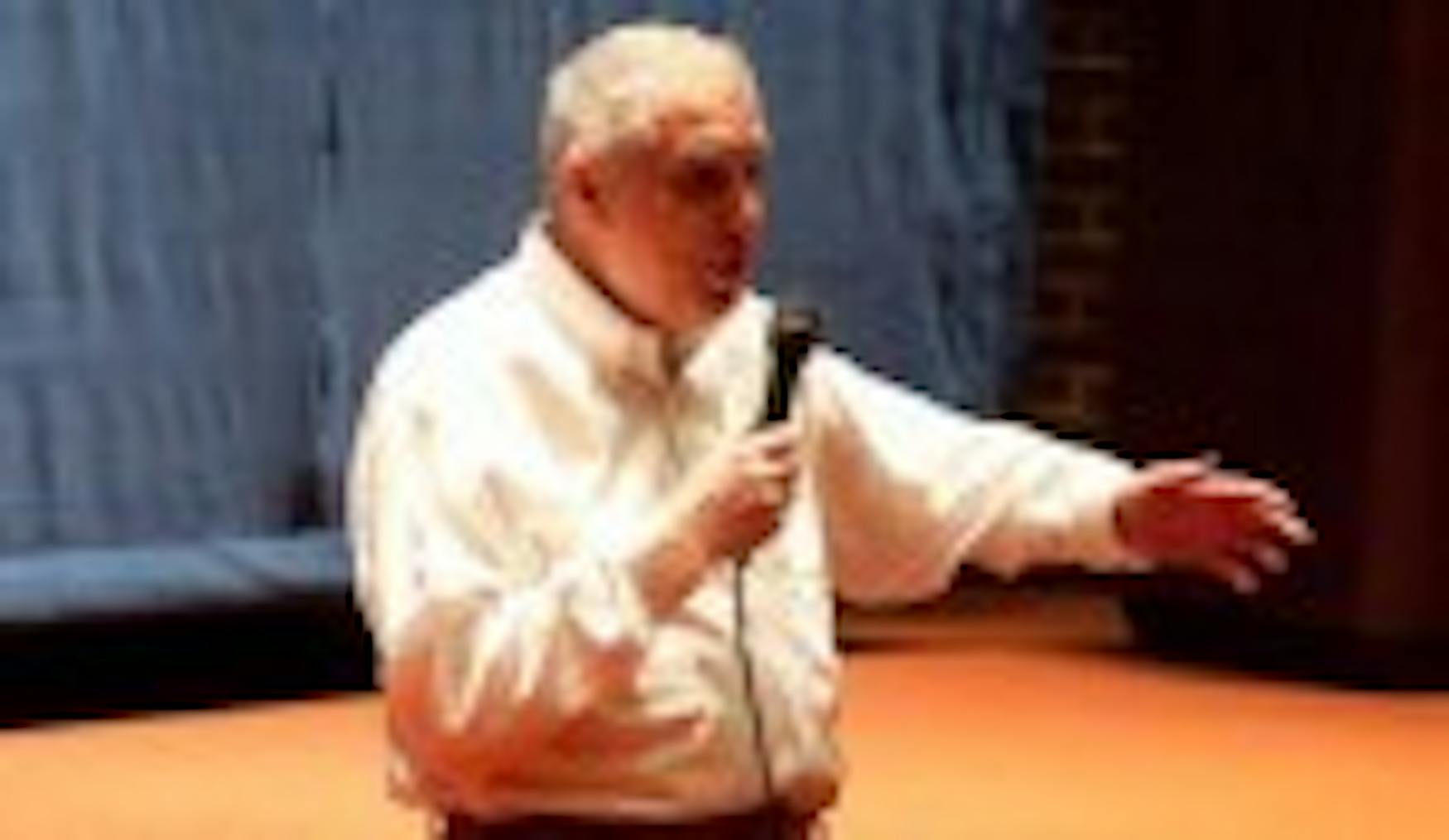Errol Morris unravels history with film
Unexpected things can happen during the documentary filming process. Since a director cannot predict how an interview or on-scene shot will turn out, the end product tends to be a surprise. What originally starts out as a film about an execution technology expert, for example, may turn into a discussion on Neo-Nazism-that's what happened to filmmaker Errol Morris in his 1999 film Mr. Death: The Rise and Fall of Fred A. Leuchter, Jr. In Morris' most famous work, The Fog of War: Eleven Lessons from the Life of Robert S. McNamara, the director had no idea that the controversial former secretary of defense would go into detail about the "war crimes" committed by the United States while firebombing Japan in World War II. Through interviews in The Thin Blue Line-originally planned to be a documentary about prosecution psychiatrist Dr. James Grigson-Morris achieved what he said was "one of the best things I've ever done": He helped release a man who was wrongfully convicted of murder and nabbed the confession of the person who actually did it. Last Saturday, the day before he received an honorary degree from Brandeis at its 60th commencement ceremony, Morris showed clips of The Thin Blue Line, Standard Operating Procedure and The Fog of War in a presentation titled, "Investigating with the Camera." A former private investigator, Morris' interviewing style was an important element in explaining how these films-which all revealed something about their subject matters that no one else knew-came to be.
After University President Frederick Lawrence, a former attorney, introduced Morris, the filmmaker noted that his style of interviewing is the exact opposite of a lawyer's. While an attorney's mantra typically goes, "Never ask a question unless you know the answer," Morris' philosophy highlights the unexpected parts of the interview: "If you know the answer to a question that you're going to ask, why bother asking it in the first place?"
Prior to speaking with McNamara-who, after researching Morris, had originally refused the interview-Morris had no idea that General Curtis LeMay had employed brutal tactics in the United States' strategic bombing of the Pacific theater in 1945. McNamara, who was a lieutenant colonel working with LeMay at the time, discussed the reasoning behind LeMay's decision to bomb Tokyo. The implications behind the decision, which resulted in over 100,000 civilian deaths, were astonishing. Morris juxtaposed McNamara's voice with images of the bombing and statistics of Japanese civilian deaths, which he found in national archives after the interview.
Morris did not expect to hear such surprising words coming out of McNamara's mouth. The result was a film that changed audiences' perspectives on World War II, the Cuban Missile Crises and the Vietnam War. How did he do it? In terms of technology, he did it with an Interrotron.
Morris invented the Interrotron to achieve a true first-person experience between the audience and the interviewer. It is a camera that displays Morris on a monitor so that interviewees may look directly at the camera when answering his questions. He has used this device in almost all of his films. What Morris has come to realize is that when filming a subject during an interview, people can end up saying extremely astonishing things.
"You would think that the way you discover new facts is through some kind of stealth or subterfuge. Why would you be able to find out anything new with a camera crew present?" Morris said in an interview with the Justice. "If there was a reason for people to be on their guard, you would say this is it. And yet, I discovered unexpected things while filming interviews."
For example, in Standard Operating Procedure, Morris discovered that Janis Karpinski did not really play the role that everyone thought she did in the Abu Ghraib prisoner abuse scandal. It is a famous photograph-there she was, bending over the corpse of a tortured prisoner of war, smiling and giving a thumbs up. The immediate reaction, understandably, was that Karpinski was somehow responsible for the killing of the man. But, as the film revealed, a photograph can only tell so much of a story. In fact, Karpinski had no idea where the victim came from, and as she speaks into the Interrotron, the audience realizes that the whole picture is much more complex.
"Interviewing is mysterious. I have all types of wacko theories about why I'm successful at it, but ultimately, I don't really know," Morris said. When asked about when he knew that a film was completed, he suggested that he just stops filming when the producers start bugging him.
Morris' upcoming works include Tabloid (opening July 15)-he screened the film at Brandeis last semester-which traces the journey of a beauty pageant winner who allegedly kidnaps and rapes a Mormon, and The Wilderness of Error, a book (yes, he writes too) about a "horrendous series of errors" surrounding a Green Beret doctor.



Please note All comments are eligible for publication in The Justice.